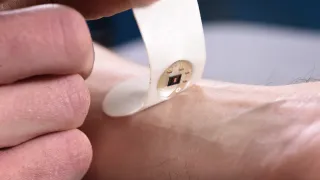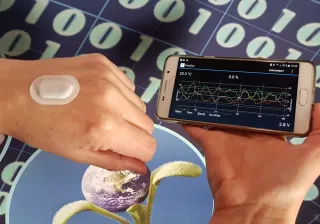Revolutionary medical diagnostics, surgical tools, and therapeutic applications based on photonics can enhance consumers' lives within a few years. This could result from the PhotonMed project with a budget of 32 million euros and 39 partners in 9 countries. Coordinated by VTT from Finland, PhotonMed accelerates the uptake of research innovations by ensuring they are directly implementable in manufacturing.
The PhotonMed project aims to significantly reduce the time to enter the market for advanced photonics technologies in medical devices. These advancements enable more accurate, faster, less invasive, and more personalised healthcare solutions and diagnostic and therapeutic tools that improve patient outcomes and overall healthcare efficiency.
The ChipsJU/EU and national funding agencies have provided PhotonMed with 32 million euros. VTT Technical Research Centre of Finland oversees the project's coordination.
“Until now, the gap between research and manufacturing has been a major hurdle in introducing photonics innovations for medical applications. Coupled with regulatory validation processes, the time-to-market takes years, incurring high costs. The PhotonMed project aims to bridge the gap by creating structured industrial supply chains and leveraging a pilot line R&D model to facilitate faster commercialisation,” says VTT’s Research Professor Jussi Hiltunen.
In the PhotonMed project, research is validated through 16 pilot cases led by end-user companies. The photonics technologies applied in these cases include light sources, integrated optics, fibre optics, advanced packaging, microfluidics, and reader instrumentation.
PhotonMed project, exploiting pilot line operational model and research infrastructure of various partners, aims at ensuring that new technologies meet stringent regulatory requirements, making it easier for companies to transition from R&D to production.
Partners ranging from research to manufacturing and end-users
The PhotonMed consortium consists of 39 partner organisations in 9 countries. It brings together the entire research and supply chain with component manufacturing and end-user companies such as Polar, well-known for its sports watches.
“As a pioneer in wearable technology, we find the PhotonMed project extremely interesting. We are enthusiastically expecting what kind of photonics research results could be introduced as new features in our sports and fitness watches and wellbeing solutions,” says Ismo Savikoski, from Polar, Vice President of Research and Development.
One of the challenges PhotonMed is tackling is the need for miniaturisation in developing highly integrated photonic devices. Manufacturing partners such as German-based FiconTEC find this attractive.
“FiconTEC is proud to join the PhotonMed consortium, aiming to enhance our integration and production technologies in the biomedical sector while significantly advancing our capabilities to miniaturise and package cutting-edge solutions for the medical device industry. We expect to develop and implement automated production methods that will streamline the complex assembly processes of photonics-related medical devices, setting new standards for efficiency and reliability,” says Dr Moritz Seyfried, Director of R&D at FiconTEC.
Another expectation is that PhotonMed will facilitate the development and manufacturing processes of components.
“PhotonMed will support Surfix in developing selected components and processes, thereby increasing our technology and manufacturing readiness levels. Furthermore, PhotonMed will accelerate the establishment of a mature European industrial photonics ecosystem. All in all, we expect that PhotonMed will help us achieve a successful product launch and facilitate future product developments,” says Arthur Blom, COO of Surfix Diagnostics.




